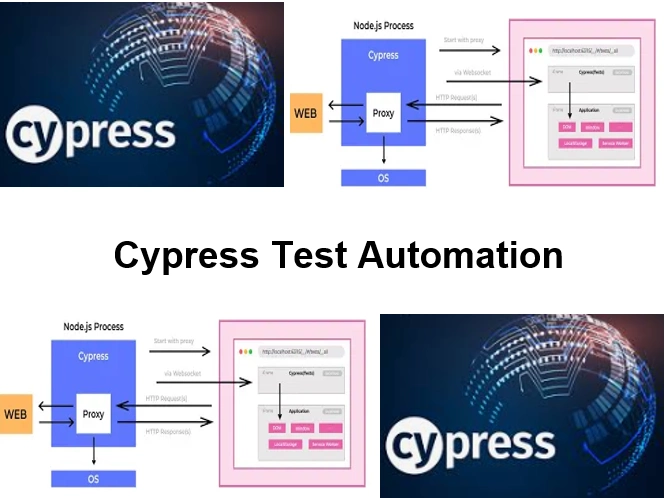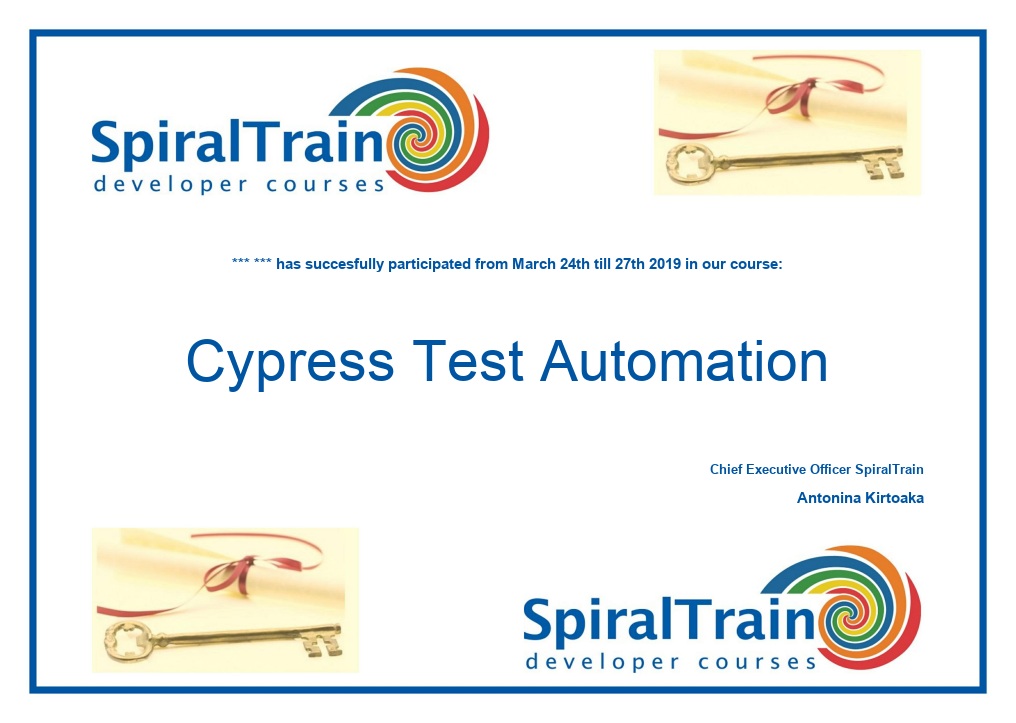-
Learning by doing
-
Trainers with practical experience
-
Classroom training
-
Detailed course material
-
Clear content description
-
Tailormade content possible
-
Training that proceeds
-
Small groups
The course Cypress Test Automation is designed to give participants the essential skills and knowledge required to use the powerful JavaScript-based testing framework Cypress for efficient test automation. Cypress has emerged as a leading test automating framework supporting unit tests, component tests and end to end tests.
The course Cypress Test Automation starts with a discussion of Cypress's unique architecture. Tests in automation tools such as Selenium work outside the browser and send external commands via the network. Cypress, on the other hand, runs behind a NodeJS server process and tests in the browser itself.
Next Web GUI testing, in which the DOM of a page is first accessed via Element and CSS Selectors, after which Cypress commands control the application, is treated. Then test validation through assertions is covered.
Attention is paid to REST API testing where HTTP Requests are fired using Cypress commands and HTTP Responses are validated with assertions. The creation of custom Cypress commands is also treated.
The use of mocks is discussed with cy.intercept, which isolates the application from external dependencies. Tests are then exclusively about the behavior of the application. The use of stubs in Cypress with cy.stub is also covered.
Part of the program of the Cypress Test Automation course is also how to automate tests and integrate with CI/CD tools such as GitLab. Attention is paid to cross browser testing and parallelization of tests as well.
Finally the reporting options in Cypress are covered. The various reporting tools such as the Mocha and Spec reporter are discussed and attention is paid to JUnit reports and Cypress Dashboards.
The course Cypress Test Automation is intended for testers and developers who want to use Cypress for testing and test automation of Web Applications and REST APIs.
Experience with testing is required. Experience with basic programming is recommended, but not strictly necessary to participate in the course Cypress Test Automation.
Theory and concepts of Cypress are covered through demos and presentations. Exercises and theory are interchanged on a regular basis.
After successful completion of the course Cypress Test Automation a certificate of participation will be issued.

Module 1 : Cypress Intro |
Module 2 : Web GUI Testing |
Module 3 : API Testing |
|
What is Cypress? Cypress Architecture Installing Cypress Configure the IDE Creating Projects Cypress Configuration CLI Runner Writing Basic Tests Types of Test Component Tests End tot End Tests |
Document Object Model DOM Structure Element Selection CSS Selectors Cypress Commands Handling HTTP Requests Handling Browser Events Interacting with Forms Navigating Between Pages Using Assertions Test Validations |
Cypress for API Testing Writing API Tests cy.request Command GET and POST Requests Request Options Handling Response Objects Assertions API Testing Cypress.env Command Authentication and Authorization Building Custom Commands Documenting API Tests |
Module 4 : Mocks and Stubs |
Module 5 : Test Automation |
Module 6 : Cypress Reporting |
|
What are Mocks? Mocking in Unit Tests Intercepting Methods cy.intercept Method Using Fixtures Mocking API Responses What are Stub? Stubbing in Unit Tests cy.stub Method Replace Method with Function |
Automating Cypress Tests Integration with CI Create Independent Tests Favore Data Attributes Cross Browser Test Avoid cy.wait Avoid after Hooks API Tests in CI/CD Parallel Testing Programmatic Authentication |
Reporting in Cypress Mocha Reporter Spec Reporter Configuration in cypress.json JUnit Reports Cypress Dashboards Sharing Dashboards Smart Orchestration Faster CI Builds Cypress Cloud |
